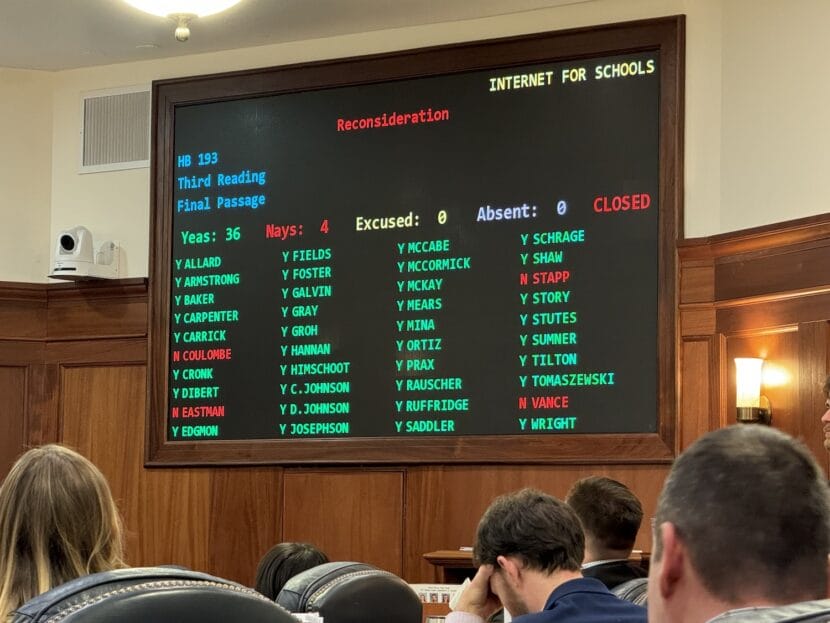Rural Alaska schools may get additional state and federal funding for faster internet despite Gov. Mike Dunleavy’s veto of a multipart education bill this week.
Early Thursday morning, the Alaska House of Representatives voted 36-4 to advance House Bill 193, which offers rural schools as much as $39.4 million in state aid to match federal dollars intended to improve their internet service.
Rep. Bryce Edgmon, I-Dillingham and the leading House lawmaker behind the bill, said he expects the Senate to take it up speedily and said the governor’s office has told him that Dunleavy is inclined to allow it to become law.
Legislators must act quickly: March 27 is the final federal deadline for rural school districts to apply for funding that pays for nine in every 10 dollars of their internet bills.
If districts miss that deadline, they won’t be able to reapply until next year.
Currently, the districts are limited to speeds of 25 megabits per second, slow enough that it no longer qualifies as “broadband” under a new definition published by the Federal Communications Commission last week.
HB 193 provides a state match for federal funding that pays for speeds of up to 100 mbps.
“No. 1, we don’t have much time left. We have seven days until there’s an absolutely hard stop,” Edgmon said late Wednesday night.
Last year, 151 schools benefited from the program, but many have said that the current limits on bandwidth and speed are too low for modern use.
“We’re in an era when schools are relying more and more on better internet speeds for everything from teleconferencing to taking tests … it’s become an essential service,” Edgmon said.
Rep. Thomas Baker, R-Kotzebue, said that in some of the schools he represents, it might take 15 minutes to open a Wikipedia page, and that some administrators have to cut internet to parts of their school building to ensure that there’s enough bandwidth for other students.
Rep. Alyse Galvin, I-Anchorage, urged lawmakers to support the bill, citing public testimony that showed it took some students four days to take an online test because of inadequate internet. Students in Anchorage could complete the test in a single day, she said.
“If we’re going to have a system of public education, then we need to make sure this gets leveled out,” she said.
Funding for the improved internet program had been included in Senate Bill 140, comprehensive education legislation that passed the House and Senate in February, but Dunleavy vetoed the bill and on Monday, lawmakers failed by a single vote to override the veto.
House Rules Committee Chair Craig Johnson, R-Anchorage, said the push to get HB 193 through the House late Wednesday and early Thursday was at least partially attributable to the Alaska Beacon’s reporting on the issue.
This story originally appeared in the Alaska Beacon and is republished here with permission.


